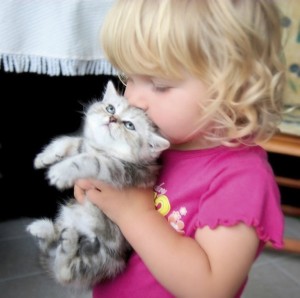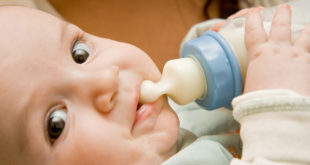 Once your milk supply is established, weaning abruptly causes certain physical changes. Your breasts will continue to produce milk for a while, and if some isn’t removed, you may become engorged, and possibly develop mastitis. You will also experience a sudden drop in prolaction levels, which may add to your feelings of depression.
Once your milk supply is established, weaning abruptly causes certain physical changes. Your breasts will continue to produce milk for a while, and if some isn’t removed, you may become engorged, and possibly develop mastitis. You will also experience a sudden drop in prolaction levels, which may add to your feelings of depression.
Here are some suggestions that may minimize your discomfort, and avoid potential problems.
- Don’t bind your breasts. This is an old fashioned idea which is no longer recommended because it can make you very uncomfortable, and may cause plugged ducts and mastitis. Wear a supportive sport bra instead.
- Using drugs to “dry up” the milk is also not recommended because they are not very effective, and may cause serious side effects.
- Wear a supportive (but not tight) bra for support. Choose clothing that is less likely to show wet spots if you leak, and wear nursing pads to absorb leaking milk.
- Drink to thirst. Restricting fluids doesn’t help.
- Cut down on salt intake. Salt causes your body to retain fluids
- Take 200 mg of vitamin B6 each day for 5 days to relieve engorgement.
- Sage tea contains a natural form of estrogen and can decrease your supply and help dry up your milk. You can buy it at the health food store, or use the spice from your kitchen. Take 1 tsp of rubbed sage with 1 cup of hot water and let it steep for about 15 minutes. You will want to add some milk or honey to it as it is very bitter. One full cup every 6 hours usually will usually dry the milk up quickly. Sage works best if you use it along with cabbage leaf compresses. You can also get an alcohol tincture from a health food store. 3-4 ml every 6 hours usually dries up the milk quickly and goes down a little faster than the tea. The tincture is more readily absorbed in the mucous membranes, so it is somewhat more efficient at decreasing your milk supply.
- Cabbage leaf compresses are a home remedy that has been used for over a hundred years to reduce engorgement and dry up milk. Here’s how to use them: Buy plain green cabbage. Rinse and dry leaves. Put them in the refrigerator. Remove base of hard core vein and gently pound leaves. Wrap around breast and areola, leaving nipple exposed. The leaves fit nicely around the breast, and the cold feels good. Cover entire breast, and if needed, the area under your arms. Change every 30 minutes or sooner if the leaves become wilted.
- Don’t be afraid to relieve your discomfort by expressing some milk. Express just enough to soften your breasts, but not enough to empty them completely. A warm shower will help relieve the discomfort of full breasts, and is a good place to express a little milk to relieve the fullness.
How often you express should be determined by your comfort level. Always go as long as you can before pumping (or hand expressing) and take out as little milk as possible. If you have been pumping every 3 hours, start out by pumping every 4 hours, then every 6, then every 8, then every 12, etc. If you have been pumping 6 ounces at each session, pump 4 ounces, then 3, then 2, etc. By gradually expressing less milk less and less often your supply will decrease without causing physical problems for you.
The amount of time it takes for your milk to dry up depends on how full a supply you have built up. If you have very little milk when you wean, it may be possible to quit cold turkey with a minimum of discomfort. For most mothers, a more gradual approach is recommended. If you have a full supply when you wean, and you taper off gradually, you should be able to stop expressing completely within 2-3 weeks, and often sooner. It is normal for you to be able to express a few drops of milk or have a little leaking for weeks or months after you stop nursing.
If you have lost a baby, and would like to donate the milk you express during this time, or any you might have frozen, you can contact one of the milk banks around the country. They provide milk for sick or premature infants whose mothers are unable to provide milk for them.
Donors are volunteers, and are not paid for their milk. Milk banks pay for tests to make sure that the donors are healthy, and processing and shipping of milk to the bank. There are only 11 milk banks in the US, so this option isn’t available to all mothers. In order to obtain human milk from a milk bank, moms need a prescription from their doctor. Insurance may or may not cover the cost, which is around $5.00 per ounce, plus shipping fees. For more information, visit the website for the Human Milk Banking Association of North America (HMBANA) for a list of milk banks in your area : http://www.hmbana.org/.
For information about the controversial topic of milk sharing and options other than milk banks, visit these sites: Eats On Feets and Human Milk 4 Human Babies.
Facebook and the internet offer many resources for moms who have lost their babies. Two of the best are ‘Miscarriage and Pregnancy Loss’, and ‘Compassionate Friends’.
There is no perfect way to deal with the loss of a child. Every parent grieves in their own way. Here’s an article about a mom whose baby boy was born sleeping at 34 weeks. She has found a beautiful way to cope with saying goodbye to Jude by donating her breast milk to save other babies.
A grieving mother once wrote: “I have lost my child and a hole has been ripped in the universe. Neither I, nor the universe can be the same. We shall mourn our losses together.”
This will be the most devastating thing you will ever experience. I encourage you to seek support from others who have experienced the same loss.
Anne Smith, IBCLC
Breastfeeding Basics
*Please ‘Pay it Forward’!*
If you found any of the information in this article, helpful, please consider making a small donation to my favorite cause – Project Pets: Spay, Neuter, Love – an all volunteer, non-profit organization that provides free spay and neuter services for homeless rescue dogs and cats…because every baby deserves a home, whether they have two legs or four! To find out how you can help, visit Project Pets on Facebook.
 Breastfeeding Basics
Breastfeeding Basics





